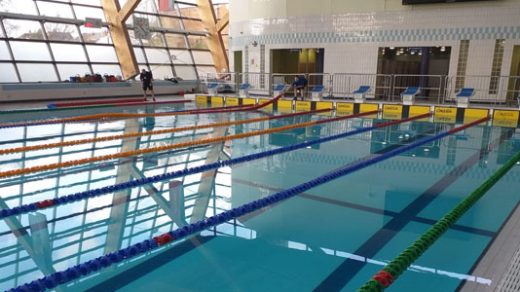Interview with Dr Penny Ding

Liverpool is blessed with a rich Chinese history and community. In the late 1860s, many Chinese migrants first arrived in Liverpool as a result of the employment of Chinese seamen by the Blue Funnel Shipping Line, creating strong links between Shanghai, Hong Kong and Liverpool.
The city’s Chinatown was the first to be built in Europe. Its defining feature, the intricately crafted Chinese arch, was imported piece by piece from Shanghai, a city Liverpool is twinned with. In fact, it is the tallest standing arch in any Chinatown outside of mainland China.
Established in 2009, the Liverpool Confucius Institute is a collaborative project between the University of Liverpool (UoL), Xi’an Jiaotong University (XJTU) and the Chinese International Education Foundation.
The Liverpool Confucius Institute is dedicated to working with UoL, XJTU, local Liverpool and Merseyside councils, cultural organisations, schools and the public to promote Chinese language and culture.
Dr Penny Ding, a senior lecturer of Chinese studies in the Department of Languages, Cultures and Film (LCF), is the UK deputy director of the Liverpool Confucius Institute (LCI) and ensures the meticulous planning and delivery of the institute’s ongoing strategy.
Penny is a distinguished scholar. She received her BA degree in English language and literature at Qufu Normal University and studied for her Masters in English linguistics at Beijing Foreign Studies University (BFSU), where she was also a lecturer in English.
In 2008 she received her PhD in the School of English at the University of Nottingham, under the supervision of the late Professor Zoltán Dörnyei.
Penny says: “After I finished my PhD, I wasn’t teaching Chinese or Chinese studies but I was very lucky Beijing Foreign Studies University still kept my post and they wanted me to go back, but I was more interested in working in the British system.
“Many of my former colleagues and my teachers couldn’t understand this because it was a good job, and I was told that nobody else had left the university or even studied overseas.”
Penny returned to China and applied for a job at Soochow University where she set up a successful English department and was responsible for writing new programmes and modules. It was here that her relationship with UoL flourished and she eventually came back to the UK and set up home in Liverpool.
Her role within the LCI focuses on the academic side of things and works to improve and enhance the quality of Mandarin teaching and the culture deliveries in the university
and beyond.
Penny explains: “I set up the cultural events, as well as the Mandarin teaching and I lead with our external and internal partners. We are an institute that serves the university but also other educational institutions, such as local primary and secondary schools,
Language is so important and for me, personally and professionally, it opened a door to a much richer world and have a much richer life.
“We have a wide outreach mission and I continue our collaborations with these external partners and also develop links with them.”
Reflecting on the growth of the LCI, when Penny first started her position she was often asked ‘What is that?’
She shares: “Now my colleagues, and other groups, get in touch with me because they want to participate in our Chinese New Year gala or our infamous dragon boat races.”
Last year, LCI held its first Chinese New Year gala since the pandemic and within just a couple of weeks, all 300 tickets sold out. In order to meet demand in 2024, the gala moved to St George’s Hall and once again tickets sold out quickly.
Penny adds: “There is a real interest in Chinese culture, music, and the arts here in the community. It is fantastic to be able to celebrate this.”
Developing relationships within schools is a key aspect of the LCI, and it is wide-reaching.
“Teaching Mandarin and making it part of the curriculum is quite a challenge,” Penny says.
“Being a researcher and scholar in language teaching, I know how important the environment is for language acquisition. There’s a lack of environment in any foreign countries outside China for children, whether they are heritage language learners or just young children.
“We have been trying to incorporate language and culture together. We have created a programme based on the experience and so we designed a ‘China day’ programme which are shorter sessions and includes a language taster, calligraphy, Chinese painting, and teaching Chinese song and music.”
Penny continues: “These have been very successful and we were able to provide these workshops for the university as part of an outreach project. We target around 100 primary and secondary schools, particularly children whose parents, or grandparents, may have not gone to university.
“The project involves a visit to the university, the library and then they come to do a language taster and arts and crafts workshop in the Confucius Institute.”
Over the years, LCI has formed deep-rooted relationships with schools that have strong linguistics departments in the Liverpool City Region, such as Belvedere Girls Academy, King David High School and Caldy Grange Grammar School.
“We are regularly approached by schools to help support their language days which is a great honour for us,” adds Penny. “Learning a language can be very dry and a tedious, long process – by sparking an interest in the children they then have a choice on how to approach languages in the future.”
For the LCI, supporting and raising cultural awareness and appreciation is vital for the younger generations.
Penny explains: “Language is so important and for me, personally and professionally, it opened a door to a much richer world and have a much richer life. There’s so much to learn and I think that’s why I will use whatever knowledge and experience I have to promote the language.
“Learning a language is difficult and this means we must try to engage in an innovative and creative way, and bring the resources together to make it easier for everyone, whether that is through culture, music, sports and the arts.”
Earlier this year, Dr Penny Ding was announced as a new judge for the Educate Awards.
She adds: “I am really honoured to become a judge and, in particular, I am looking forward to judging the Innovative & Creative Literacy Award and also the Community Partnership Award. It will give me a unique opportunity to see how schools are engaging with students through literacy and how they are building relationships within the wider community.”
Schools interested in offering Mandarin as an extra-curricular activity can contact the Liverpool Confucius Institute for more information and teaching support.
Find out more: www.liverpool.ac.uk/ confucius-institute/.



